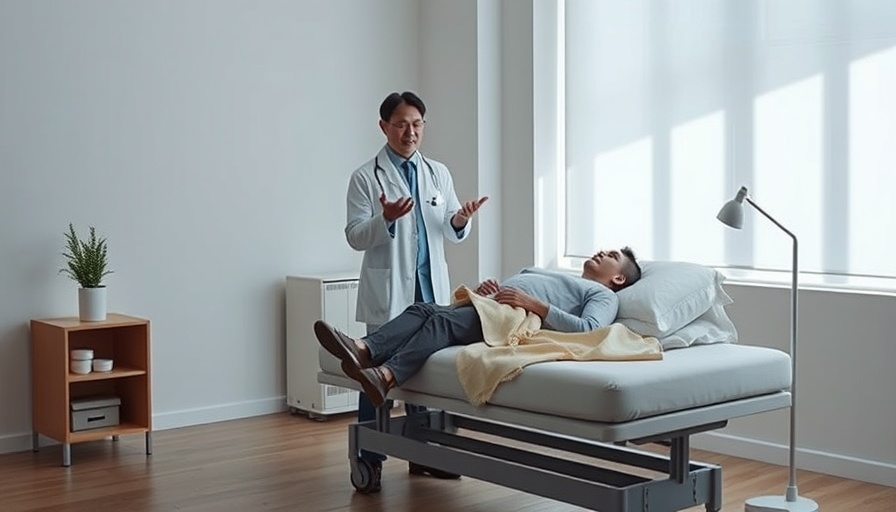
Understanding the Benefits of Inclined Bed Therapy for Better Sleep
In our pursuit of better sleep quality, the ancient practice of elevating the head of the bed, seen in artifacts as far back as Egyptian times, is gaining renewed attention. Recent studies indicate that inclined bed therapy can alleviate common sleep disorders, such as snoring and obstructive sleep apnea (OSA), providing a natural and effective solution for many.
In 'Tilt Your Bed For Optimal Sleep? Inclined Bed Therapy Reduces Snoring, GERD, Sleep Apnea,' the video discusses the health advantages of elevating the head of the bed, prompting a deeper analysis of how this practice can enhance sleep quality.
Clinical Insights: Enhanced Breathing and Reduced Snoring
A study published in 2022 showed that even a modest incline of just 12° can lead to a 7% reduction in snoring and a 4% decrease in sleep disturbances. Participants reported a 5% increase in deep sleep, providing encouraging evidence that simple adjustments to our sleep environment can yield significant health benefits.
Combatting Obstructive Sleep Apnea and Acid Reflux
Elevating the head of the bed has shown promise for individuals diagnosed with OSA. Research indicates that those sleeping at a 30° incline experienced a notable reduction in apnea-hypopnea index scores—from an average of 15.7 to 10.7—indicating fewer interruptions in breathing during the night. Additionally, the elevation may assist in reducing acid reflux, offering relief for those struggling with gastroesophageal reflux disease (GERD).
Beyond Sleep: Alleviating Sinus Pressure and Eye Health
Another potential advantage of inclined sleeping is improved sinus drainage, lessening congestion and discomfort. Furthermore, studies suggest maintaining an elevated position while sleeping may reduce intraocular pressure in individuals with glaucoma, presenting a dual benefit for sleep and eye health.
Practical Steps for Implementing Inclined Bed Therapy
If you're considering this natural intervention, starting with simple tools like bed risers or specialized wedge pillows may provide an effective means of elevating your sleep position. It's essential to see what degree of incline feels most comfortable to you and to ensure that your overall sleeping position supports spinal health.
Conclusion: Prioritize Your Sleep Health
With a growing body of evidence supporting the benefits of elevated sleep positions, it’s time to reconsider how we configure our sleep environments. If you’re interested in exploring inclined bed therapy, consider adjusting your sleep setup, as it may lead to healthier sleep habits and overall improvements in well-being.
 Add Row
Add Row  Add
Add 




Write A Comment